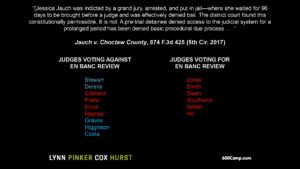2018 has offered several close votes about en banc review, often showing the importance of the new Trump appointees to the overall makup of the Fifth Circuit. The Court recently voted to rehear en banc the case of Collins v. Mnuchin, an important administrative law dispute about the structure and authority of the Federal Housing Finance Agency (a regulator for Fannie Mae and Freddie Mac created by Congress after the 2008 financial crisis). The difficult issues produced three opinions by the panel members. The Court’s order requested supplemental briefing about, inter alia, the appropriate remedy if the Court concluded that the agency had a structural problem. The argument will be in January 2019 and should bring more insight about the direction of the modern Fifth Circuit. 
Category Archives: General Court Information
 Despite the Trump Administration’s blazingly-hot pace for Fifth Circuit appointments, with five successful nominations before the midterm elections, the process of replacing Judge Jolly of Mississippi has lagged and the Court continues to have that one vacancy. Philip Thompson’s outstanding blog about Mississippi litigation recently had a detailed analysis of the political situation surrounding this vacancy.
Despite the Trump Administration’s blazingly-hot pace for Fifth Circuit appointments, with five successful nominations before the midterm elections, the process of replacing Judge Jolly of Mississippi has lagged and the Court continues to have that one vacancy. Philip Thompson’s outstanding blog about Mississippi litigation recently had a detailed analysis of the political situation surrounding this vacancy.
 If you are a lawyer in the Dallas area, you should read today’s post on 600Commerce, about the new Democratic majority and Democratic Chief Justice on the Dallas Court of Appeals.
If you are a lawyer in the Dallas area, you should read today’s post on 600Commerce, about the new Democratic majority and Democratic Chief Justice on the Dallas Court of Appeals.
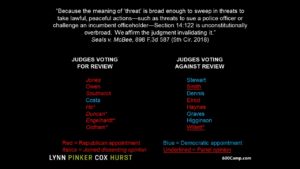 A Fifth Circuit panel struck down a Louisiana criminal statute about “threats” in Seals v. McBee, which led to an 8-8 vote and denial of en banc review. The full breakdown appears in the chart to the right; again, the new appointments by President Trump brought a case to the cusp of en banc review that likely would not have gotten so far before. No. 17-30667 (Oct. 31, 2018). A dissent from the denial of en banc review, joined by 4 of the 5 Trump appointees, would have dismissed the case on standing grounds. (The chart has been corrected from the original post, which misidentified Judge Dennis as a Republican appointee.)
A Fifth Circuit panel struck down a Louisiana criminal statute about “threats” in Seals v. McBee, which led to an 8-8 vote and denial of en banc review. The full breakdown appears in the chart to the right; again, the new appointments by President Trump brought a case to the cusp of en banc review that likely would not have gotten so far before. No. 17-30667 (Oct. 31, 2018). A dissent from the denial of en banc review, joined by 4 of the 5 Trump appointees, would have dismissed the case on standing grounds. (The chart has been corrected from the original post, which misidentified Judge Dennis as a Republican appointee.)
 The en banc case of Alvarez v. City of Brownsville involved a difficult question about municipal liability, under 42 U.S.C § 1983, for an alleged Brady violation arising during the plea bargaining process. The plaintiff had won a $2.3 million judgment after a jury trial. The majority opinion found inadequate evidence of deliberate indifference for § 1983 liability; as to the Brady issue, it held that “case law from the Supreme Court, this circuit, and other circuits does
The en banc case of Alvarez v. City of Brownsville involved a difficult question about municipal liability, under 42 U.S.C § 1983, for an alleged Brady violation arising during the plea bargaining process. The plaintiff had won a $2.3 million judgment after a jury trial. The majority opinion found inadequate evidence of deliberate indifference for § 1983 liability; as to the Brady issue, it held that “case law from the Supreme Court, this circuit, and other circuits does  not affirmatively establish that a constitutional violation occurs when Brady material is not shared during the plea bargaining process.” From there, the sixteen judges that comprised this en banc panel authored six other opinions; this chart summarizes the authors and the joinders. No. 16-40772 (Sept. 18, 2018). It is unclear how that breakdown may carry over to commercial cases, but the opinions are revealing insights into a number of judges’ attitudes about structural and constitutional issues.
not affirmatively establish that a constitutional violation occurs when Brady material is not shared during the plea bargaining process.” From there, the sixteen judges that comprised this en banc panel authored six other opinions; this chart summarizes the authors and the joinders. No. 16-40772 (Sept. 18, 2018). It is unclear how that breakdown may carry over to commercial cases, but the opinions are revealing insights into a number of judges’ attitudes about structural and constitutional issues.
 At the intersection of civil and criminal law, United States v. Gas Pipe reminds of the reach of the federal civil forfeiture: “Although ‘merely pooling tainted and untainted funds in an account does not, without more, render that account subject to forfeiture,’ untainted funds are forfeitable if a defendant commingled them with tainted funds ‘to disguise the nature and source of his scheme.’ Here, the Government alleged in its verified complaint that the defendant Claimants commingled tainted and untainted funds in the UBS accounts to conceal or disguise the tainted funds. Some commingled funds allegedly also secured a loan that financed the alleged spice scheme and which was repaid with criminal proceeds.” No. 17-10626 (Aug. 16, 2018) (citations omitted).
At the intersection of civil and criminal law, United States v. Gas Pipe reminds of the reach of the federal civil forfeiture: “Although ‘merely pooling tainted and untainted funds in an account does not, without more, render that account subject to forfeiture,’ untainted funds are forfeitable if a defendant commingled them with tainted funds ‘to disguise the nature and source of his scheme.’ Here, the Government alleged in its verified complaint that the defendant Claimants commingled tainted and untainted funds in the UBS accounts to conceal or disguise the tainted funds. Some commingled funds allegedly also secured a loan that financed the alleged spice scheme and which was repaid with criminal proceeds.” No. 17-10626 (Aug. 16, 2018) (citations omitted).
 The issue in Kirchner v. Deutsche Bank was whether a spouse’s signature on a deed of trust – but not the loan instrument – satisfied the Texas Constitution’s requirements about home equity loans. The Fifth Circuit found the issue was squarely addressed by a prior unpublished opinion, which it called “persuasive,” and affirmed – this time, in a published opinion. The broader principle is that unpublished opinions can work their way into published “status” when the issues they address are recurring ones. No. 17-50736 (July 11, 2018).
The issue in Kirchner v. Deutsche Bank was whether a spouse’s signature on a deed of trust – but not the loan instrument – satisfied the Texas Constitution’s requirements about home equity loans. The Fifth Circuit found the issue was squarely addressed by a prior unpublished opinion, which it called “persuasive,” and affirmed – this time, in a published opinion. The broader principle is that unpublished opinions can work their way into published “status” when the issues they address are recurring ones. No. 17-50736 (July 11, 2018).
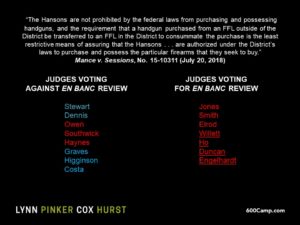 Rehearing motions led to a revised panel opinion and an en banc vote in Mance v. Sessions, a Constitutional challenge to restrictions on handgun sales by an authorized federally-licensed firearm dealer, to a purchaser who lives in a different state from the dealer. The revised opinion affirming the restrictions stood, with the Court voting 9-7 against rehearing en banc. Two of the three dissents from the vote were written by recent nominees of President Trump, with all of his nominees joining the vote in favor of review. Notably, this vote reflects two vacancies at the time it was conducted (one of which has since been filled with the confirmation of Judge Oldham, and other to be filled when a nomination is made to replace Judge Jolly of Mississippi). Assuming the two nominees would join the other new judges in their view of this case, their addition would be outcome-determinative as to its en banc review.
Rehearing motions led to a revised panel opinion and an en banc vote in Mance v. Sessions, a Constitutional challenge to restrictions on handgun sales by an authorized federally-licensed firearm dealer, to a purchaser who lives in a different state from the dealer. The revised opinion affirming the restrictions stood, with the Court voting 9-7 against rehearing en banc. Two of the three dissents from the vote were written by recent nominees of President Trump, with all of his nominees joining the vote in favor of review. Notably, this vote reflects two vacancies at the time it was conducted (one of which has since been filled with the confirmation of Judge Oldham, and other to be filled when a nomination is made to replace Judge Jolly of Mississippi). Assuming the two nominees would join the other new judges in their view of this case, their addition would be outcome-determinative as to its en banc review.
 The Senate has now confirmed Andrew Oldham of Texas as the newest judge on the Fifth Circuit. Congratulations and every best wish to Judge Oldham.
The Senate has now confirmed Andrew Oldham of Texas as the newest judge on the Fifth Circuit. Congratulations and every best wish to Judge Oldham.
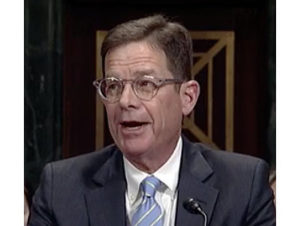 Congratulations and every best wish to new Fifth Circuit judge Kurt Engelhardt of New Orleans, formerly the Chief Judge of the Eastern District of Louisiana, who was confirmed yesterday by the Senate. Fifteen of the Court’s seventeen positions for full-time judges are now filled, with the nomination of Texas’s Andrew Oldham pending, and the seat formerly held by Judge Jolly still vacant.
Congratulations and every best wish to new Fifth Circuit judge Kurt Engelhardt of New Orleans, formerly the Chief Judge of the Eastern District of Louisiana, who was confirmed yesterday by the Senate. Fifteen of the Court’s seventeen positions for full-time judges are now filled, with the nomination of Texas’s Andrew Oldham pending, and the seat formerly held by Judge Jolly still vacant.
 The Senate has confirmed Louisiana’s Kyle Duncan to a New Orleans-based seat on the Fifth Circuit, bringing the Court one step closer to a long-awaited full roster of active-duty judges. Every best wish to Judge Duncan.
The Senate has confirmed Louisiana’s Kyle Duncan to a New Orleans-based seat on the Fifth Circuit, bringing the Court one step closer to a long-awaited full roster of active-duty judges. Every best wish to Judge Duncan.
 Making a not-so-subtle remark about the requirements for a successful en banc petition, the Fifth Circuit has amended local rule 35.5 to say: “35.5 Length. See Fed. R. App. P. 35(b)(2). The statement required by Fed. R. App. P. 35(b)(1) is included in the limit and is not a “certificate[ ] of counsel” that is excluded by Fed. R. App P. 32(f).” In other words, the certificate of counsel about the specific cases inconsistent with the panel opinion counts against the length limit.
Making a not-so-subtle remark about the requirements for a successful en banc petition, the Fifth Circuit has amended local rule 35.5 to say: “35.5 Length. See Fed. R. App. P. 35(b)(2). The statement required by Fed. R. App. P. 35(b)(1) is included in the limit and is not a “certificate[ ] of counsel” that is excluded by Fed. R. App P. 32(f).” In other words, the certificate of counsel about the specific cases inconsistent with the panel opinion counts against the length limit.
The Fifth Circuit recently denied en banc rehearing in the high-profile qualified immunity case of Jauch v. Choctaw County, where the panel denied immunity to a sheriff who had been sued over a lengthy period of pretrial detention. From one perspective, a chart of the 9-6 vote (below) shows a vote along “party lines,” with all of the votes for rehearing coming from judges appointed by Republican presidents (including both of President Trump’s recent appointments), and with all active judges appointed by Democratic presidents voting against rehearing. From another perspective, the vote shows that the group of active judges appointed by Republican presidents is hardly a monolithic bloc, as it divided roughly in half on the vote.
Celebrate with a true New Orleans muffuletta.
 A unanimous en banc opinion simplified the Fifth Circuit’s test for “whether a contract for performance of specialty services to facilitate the drilling or production of oil or gas on navigable waters is maritime.” The Court now asks: “First, is the contract one to provide services to facilitate the drilling or production of oil and gas on navigable waters? . . . Second, if the answer to the above question is ‘yes,’ does the contract provide or do the parties expect that a vessel will play a substantial role in the completion of the contract?” Larry Doiron, Inc. v. Jackson , No. 16-30217 (revised Jan. 11, 2018).
A unanimous en banc opinion simplified the Fifth Circuit’s test for “whether a contract for performance of specialty services to facilitate the drilling or production of oil or gas on navigable waters is maritime.” The Court now asks: “First, is the contract one to provide services to facilitate the drilling or production of oil and gas on navigable waters? . . . Second, if the answer to the above question is ‘yes,’ does the contract provide or do the parties expect that a vessel will play a substantial role in the completion of the contract?” Larry Doiron, Inc. v. Jackson , No. 16-30217 (revised Jan. 11, 2018).
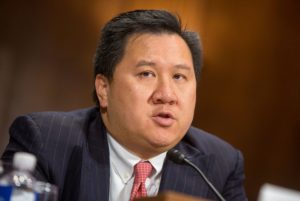 The Senate has now also confirmed Jim Ho to the Fifth Circuit.
The Senate has now also confirmed Jim Ho to the Fifth Circuit.
The Senate has confirmed Justice Don Willett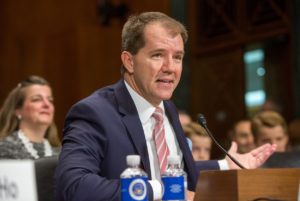 ‘s nomination to the Fifth Circuit.
‘s nomination to the Fifth Circuit.
Melton v. Phillips, No. 15-10604 (Nov. 13, 2017), a difficult qualified immunity case that required en banc review to resolve, features a concurrence with the unusual verb “cross-pollinated” to describe a confluence of two lines of authority. That perspective on the development of common law recalls the concept of “vegetation” in early scientific thought, used to describe vigorous and lively growth not just in plant life, but throughout nature. Indeed, no less than Isaac Newton wrote a paper about “Chymystry” titled “On Nature’s Obvious Laws and Processes in Vegetation”:
 Yes, according to Alexander v. Verizon Wireless Services LLC:
Yes, according to Alexander v. Verizon Wireless Services LLC:
Although many style guides, such as the Chicago Manual of Style, and news sources, such as the Associated Press, no longer instruct writers to capitalize “Internet,” we decline to follow this trend. For many, such as the New York Times, the reason for the change to “internet” is simple: others were doing it, so they thought they should, too. “Internet,” however, was originally capitalized to distinguish the global network from other internets—short for “inter networks”—which are collections of smaller networks that communicate using the same protocols. In our view, this still makes the word a proper noun, regardless of how often people refer to other internets. Furthermore, to the extent “decapitalizing [I]nternet is part of a universal linguistic tendency to reduce the amount of effort required to produce and process commonly-used words,” we reject the tasks of striking an additional key or reading over a capital “I” as persuasive reasons to alter a word.
No. 16-31227 n.12 (Nov. 13, 2017) (citations omitted).
 A rare Robert Heinlein citation appeared this week in United States v. Gibson: “The trouble with conspiracies is that they rot internally.” The Moon is a Harsh Mistress 76 (1966).
A rare Robert Heinlein citation appeared this week in United States v. Gibson: “The trouble with conspiracies is that they rot internally.” The Moon is a Harsh Mistress 76 (1966).
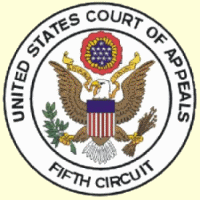 The Fifth Circuit describes its newly-created Pro Bono Program as follows. Great opportunity for quality appellate experience!
The Fifth Circuit describes its newly-created Pro Bono Program as follows. Great opportunity for quality appellate experience!
“The Program assists the Court by facilitating the appointment of pro bono counsel to represent pro se litigants. Pro Bono Panel members will, at the Court’s invitation, be appointed in civil appeals that, for example, present issues of first impression, complex facts or legal questions, or potentially meritorious claims warranting further briefing and/or oral argument.
Pro bono appointments are made by the Court, and are limited to proceedings before this Court. Although oral argument is not guaranteed, cases selected for the Program are likely to meet the Court’s criteria for granting oral argument.
Attorneys wishing to join the Pro Bono Panel should submit to the CMJS Office a cover letter (including statement of types of cases, if any, that counsel prefers or does not prefer), resumé, writing sample (appellate brief or brief of substantive motion), and statement of good standing in the Fifth Circuit Bar. Applications for panel membership should be emailed to the CMJS Office at probono@ca5.uscourts.gov. Questions about the program may be directed to Kate Clark, Administrative Attorney, at that email address or by telephone at 504-310-7799.”
 Thanks to Mary Douglass and the Bar Association of the Fifth Federal Circuit for the chance to give a commercial litigation update at the 2017 Appellate Advocacy Seminar in New Orleans; here is the PowerPoint that I used for the presentation yesterday.
Thanks to Mary Douglass and the Bar Association of the Fifth Federal Circuit for the chance to give a commercial litigation update at the 2017 Appellate Advocacy Seminar in New Orleans; here is the PowerPoint that I used for the presentation yesterday.
 Former Texas Solicitor General Jim Ho and Texas Supreme Court Justice Don Willett have been nominated to the U.S. Court of Appeals for the Fifth Circuit. The Texas Lawbook features a thorough discussion of the nominations, as does the Dallas Morning News. From Louisiana, President Trump has also nominated Stuart Duncan and U.S. District Judge Kurt Engelhardt; The Advocate has a good summary of their backgrounds.
Former Texas Solicitor General Jim Ho and Texas Supreme Court Justice Don Willett have been nominated to the U.S. Court of Appeals for the Fifth Circuit. The Texas Lawbook features a thorough discussion of the nominations, as does the Dallas Morning News. From Louisiana, President Trump has also nominated Stuart Duncan and U.S. District Judge Kurt Engelhardt; The Advocate has a good summary of their backgrounds.
 The four-part venue test adopted by the Eastern District of Texas after the Heartland opinion was short-lived, as the Federal Circuit granted mandamus relief in In re Cray, noting: “[O]ur analysis of the case law and statute reveal three general requirements relevant to the inquiry: (1) there must be a physical place in the district; (2) it must be a regular and established place of business; and (3) it must be the place of the defendant.”
The four-part venue test adopted by the Eastern District of Texas after the Heartland opinion was short-lived, as the Federal Circuit granted mandamus relief in In re Cray, noting: “[O]ur analysis of the case law and statute reveal three general requirements relevant to the inquiry: (1) there must be a physical place in the district; (2) it must be a regular and established place of business; and (3) it must be the place of the defendant.”
After last week’s opinion in In re: DuPuy Orthopaedics, the plaintiffs have sought en banc review of a panel majority’s statements about the trial court’s ruling on the key issue of waiver. The petition raises interesting and basic questions about the scope of opinions. (For more on that general topic, check out David Coale & Wendy Couture, Loud Rules, 34 Pepperdine L. Rev. 715 (2007)).
last week’s opinion in In re: DuPuy Orthopaedics, the plaintiffs have sought en banc review of a panel majority’s statements about the trial court’s ruling on the key issue of waiver. The petition raises interesting and basic questions about the scope of opinions. (For more on that general topic, check out David Coale & Wendy Couture, Loud Rules, 34 Pepperdine L. Rev. 715 (2007)).
 I am speaking at the Texas State Bar’s “Civil Appellate Practice 101” course on September 6 in Austin about key differences in procedural issues between Texas courts and federal courts in the Fifth Circuit. Here is a copy of the PowerPoint that I am using.
I am speaking at the Texas State Bar’s “Civil Appellate Practice 101” course on September 6 in Austin about key differences in procedural issues between Texas courts and federal courts in the Fifth Circuit. Here is a copy of the PowerPoint that I am using.
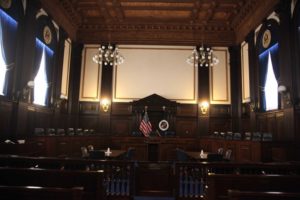 The Fifth Circuit recently granted rehearing en banc in two civil cases – Ariana M. v. Humana Health Services, 853 F.3d 753 (5th Cir. 2017), which reviewed the decisions of an ERISA plan administrator, and In re: Doiron, 849 F.3d 602 (5th Cir. 2017), which addressed whether a contract was “maritime” in nature. The common thread? Both opinions made express appeals to the full court for review:
The Fifth Circuit recently granted rehearing en banc in two civil cases – Ariana M. v. Humana Health Services, 853 F.3d 753 (5th Cir. 2017), which reviewed the decisions of an ERISA plan administrator, and In re: Doiron, 849 F.3d 602 (5th Cir. 2017), which addressed whether a contract was “maritime” in nature. The common thread? Both opinions made express appeals to the full court for review:
- In Ariana, all three panel members who joined in the same opinion also joined in a special concurrence: “As any sports fan dismayed that instant replay did not overturn a blown call learns, it is difficult to overcome a deferential standard of review. The deferential standard of review our court applies to ERISA decisions often determines the outcome of disputes that are far more important than a sporting event: decisions made by retirement and health plans during some of life’s most difficult times, as this case involving a teenager with a serious eating disorder demonstrates. So it is striking that we are the only circuit that would apply that deference to factual determinations made by an ERISA administrator when the plan does not vest them with that discretion.” (emphasis added)
- And the conclusion of the unanimous Dorian panel opinion said: “It is time to abandon the Davis & Sons test for determining whether or not a contract is a maritime contract. The test relies more on tort principles than contract principles to decide a contract case. It is too flexible to allow parties or their attorneys to predict whether a court will decide if a contract is maritime or non-maritime or for judges to decide the cases consistently. The Supreme Court’s decision in Kirby reinforces this conclusion. Just as important, the above test will allow all parties to the contract to more accurately allocate risks and determine their insurance needs more reliably.” (emphasis added)
I spoke a few days ago about recent Fifth Circuit opinions at the University of Texas Conference on State & Federal Appeals; here is a copy of the PowerPoint that I used.
I am speaking on the topic “Ethics 2017: Recent Federal Court Decisions to Know” on Friday, May 5, to the Plano Bar Association (noon at Palio’s Pizza, yum) – here is the PowerPoint that I will be using.
 In a break from the usual topics about federal procedure, today’s post about the case of Foster v. Woods provides some practical advice for private investigators. Foster, a licensed private investigator, tailed a car into a school parking lot and observed it for a short period before realizing that the driver was his target’s teenaged son. Unfortunately for Foster, the son observed him and told a friend, whose father was the local sheriff. After Foster left the school grounds the sheriff arrested him and unsuccessfully attempted to prosecute him for having brought a firearm onto school grounds (although Foster held a concealed-carry permit, and neither he nor the firearm left the car while in the school parking lot. Foster sued for wrongful arrest; the Fifth Circuit affirmed summary judgment for the sheriff: “Relevant here, Woods knew that Foster was not a student, that he followed a student’s vehicle into a student parking lot posted with a ‘no trespassing” sign, and that Foster remained in the lot for some time as students were arriving for school. . . . Given the facts known to Woods, he had knowledge that would warrant a reasonable officer to believe that Foster violated the trespass statute.” Advice – use caution when entering private property.
In a break from the usual topics about federal procedure, today’s post about the case of Foster v. Woods provides some practical advice for private investigators. Foster, a licensed private investigator, tailed a car into a school parking lot and observed it for a short period before realizing that the driver was his target’s teenaged son. Unfortunately for Foster, the son observed him and told a friend, whose father was the local sheriff. After Foster left the school grounds the sheriff arrested him and unsuccessfully attempted to prosecute him for having brought a firearm onto school grounds (although Foster held a concealed-carry permit, and neither he nor the firearm left the car while in the school parking lot. Foster sued for wrongful arrest; the Fifth Circuit affirmed summary judgment for the sheriff: “Relevant here, Woods knew that Foster was not a student, that he followed a student’s vehicle into a student parking lot posted with a ‘no trespassing” sign, and that Foster remained in the lot for some time as students were arriving for school. . . . Given the facts known to Woods, he had knowledge that would warrant a reasonable officer to believe that Foster violated the trespass statute.” Advice – use caution when entering private property.
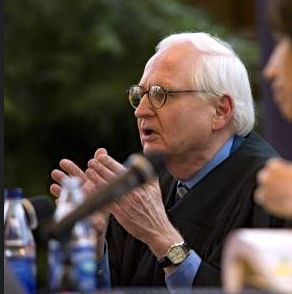 The Clarion-Ledger reports that Judge E. Grady Jolly of Mississippi will retire on his 80th birthday in October 2017, creating another vacancy on the Fifth Circuit for President Trump to fill. The same paper has a good description of the process for filling the vacancy. Judge Jolly has served the Fifth Circuit with distinction for 35 years; his skill and grace will be greatly missed.
The Clarion-Ledger reports that Judge E. Grady Jolly of Mississippi will retire on his 80th birthday in October 2017, creating another vacancy on the Fifth Circuit for President Trump to fill. The same paper has a good description of the process for filling the vacancy. Judge Jolly has served the Fifth Circuit with distinction for 35 years; his skill and grace will be greatly missed.
 In an interesting parallel to the ongoing litigation about travel bans (which most recently produced a District of Hawaii opinion granting a TRO), the Fifth Circuit denied en banc review in Defense Distributed v. U.S. Dep’t of State, which affirmed a preliminary injunction about the use of 3-D printing technology to make certain firearms. A dissent observes: “Certainly there is a strong public interest in national security. But there is a paramount public interest in the exercise of constitutional rights, particularly those guaranteed by the First Amendment . . . ” No. 15-50759 (March 15, 2017).
In an interesting parallel to the ongoing litigation about travel bans (which most recently produced a District of Hawaii opinion granting a TRO), the Fifth Circuit denied en banc review in Defense Distributed v. U.S. Dep’t of State, which affirmed a preliminary injunction about the use of 3-D printing technology to make certain firearms. A dissent observes: “Certainly there is a strong public interest in national security. But there is a paramount public interest in the exercise of constitutional rights, particularly those guaranteed by the First Amendment . . . ” No. 15-50759 (March 15, 2017).
 It is well-settled nationally that “an appellate court may not alter a judgment to benefit a nonappealing party” because “it takes a cross-appeal to justify a remedy in favor of an appellee.” Greenlaw v. United States, 554 U.S. 237, 244–45 (2008). The Fifth Circuit treats that principle as jurisdictional. See, e.g., Amazing Spaces, Inc. v. Metro Mini Storage, 608 F.3d 225, 250 (5th Cir. 2010) (“[T]his circuit follows the general rule that, in the absence of a cross-appeal, an appellate court has no jurisdiction to modify a judgment so as to enlarge the rights of the appellee or diminish the rights of the appellant.”) Some other Circuits, however, take a different view. See, e.g., Am. Roll-On Roll-Off Carrier LLC v. P&O Parts Baltimore, Inc., 479 F.3d 288, 295 (4th Cir. 2007) (“This circuit views the cross-appeal requirement as one of practice, rather than as a strict jurisdictional requirement.”) (Thanks to my LPCH colleague Russ Herman for pointing this out.)
It is well-settled nationally that “an appellate court may not alter a judgment to benefit a nonappealing party” because “it takes a cross-appeal to justify a remedy in favor of an appellee.” Greenlaw v. United States, 554 U.S. 237, 244–45 (2008). The Fifth Circuit treats that principle as jurisdictional. See, e.g., Amazing Spaces, Inc. v. Metro Mini Storage, 608 F.3d 225, 250 (5th Cir. 2010) (“[T]his circuit follows the general rule that, in the absence of a cross-appeal, an appellate court has no jurisdiction to modify a judgment so as to enlarge the rights of the appellee or diminish the rights of the appellant.”) Some other Circuits, however, take a different view. See, e.g., Am. Roll-On Roll-Off Carrier LLC v. P&O Parts Baltimore, Inc., 479 F.3d 288, 295 (4th Cir. 2007) (“This circuit views the cross-appeal requirement as one of practice, rather than as a strict jurisdictional requirement.”) (Thanks to my LPCH colleague Russ Herman for pointing this out.)
 Texas Lawyer reports that six candidates are under consideration for the two vacancies on the Fifth Circuit – “Texas Supreme Court Justice Don Willett; U.S. District Court Judge Reed O’Connor of Fort Worth; former Texas solicitor general James Ho; Andy Oldham, a deputy general counsel to Gov. Greg Abbott; Michael Massengale, a justice on Houston’s First Court of Appeals; and Brett Busby, a justice on Houston’s Fourteenth Court of Appeals” – the full story appears here.
Texas Lawyer reports that six candidates are under consideration for the two vacancies on the Fifth Circuit – “Texas Supreme Court Justice Don Willett; U.S. District Court Judge Reed O’Connor of Fort Worth; former Texas solicitor general James Ho; Andy Oldham, a deputy general counsel to Gov. Greg Abbott; Michael Massengale, a justice on Houston’s First Court of Appeals; and Brett Busby, a justice on Houston’s Fourteenth Court of Appeals” – the full story appears here.
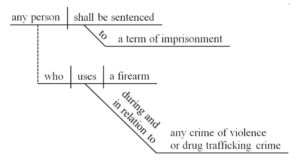 Press coverage of Judge Neil Gorsuch’s nomination to the Supreme Court has noted his intelligent and accessible writing style, including use of a sentence diagram (left) in a criminal case that turned on what elements of the crime
Press coverage of Judge Neil Gorsuch’s nomination to the Supreme Court has noted his intelligent and accessible writing style, including use of a sentence diagram (left) in a criminal case that turned on what elements of the crime  required proof of intent. In the same spirit, in dissent from the denial of en banc rehearing in a highly technical case about protection of the dusky gopher frog (right), Judge Edith Jones used a pair of Venn diagrams to illustrate her view of how the Endangered Species Act should operate (below left), contrasted with the panel opinion’s (below right). Markle Interests v. U.S. Fish & Wildlife Service, No. 14-31008 (Feb. 14, 2017).
required proof of intent. In the same spirit, in dissent from the denial of en banc rehearing in a highly technical case about protection of the dusky gopher frog (right), Judge Edith Jones used a pair of Venn diagrams to illustrate her view of how the Endangered Species Act should operate (below left), contrasted with the panel opinion’s (below right). Markle Interests v. U.S. Fish & Wildlife Service, No. 14-31008 (Feb. 14, 2017).
On Dallas’s Fox 4 News, following the lead of the Matrix movies, I characterize the nominee as “Scalia Reloaded”:
 The first ever Bench-Bar conference for the Northern District of Texas will be held on January 27 at the Four Seasons in Las Colinas. Here is the schedule and registration information; it looks to be a great program and the beginning of a strong tradition.
The first ever Bench-Bar conference for the Northern District of Texas will be held on January 27 at the Four Seasons in Las Colinas. Here is the schedule and registration information; it looks to be a great program and the beginning of a strong tradition.
On December 7, Judges Graves, Higginbotham, and Jolly heard oral argument in the high-profile False Claims Act case of Harman v. Trinity Industries. A recording of the full argument is available online, and the Texas Lawbook published a thorough summary shortly after the argument.
 The NLRB consistently holds that an agreement requiring arbitration of individual claims (and thus foreclosing class actions) violates federal labor law; the Fifth Circuit consistently reverses the NLRB on this point. After again reversing the NLRB and citing the Circuit’s “rule of orderliness” about deference to prior panel decisions, the Court noted the NLRB’s remarkably candid litigation position: “The Board concedes that this court has squarely rejected both of those decisions, and that our precedents necessitate rejecting its arguments here. The Board further acknowledges that it seeks to manufacture a circuit split in order to ‘facilitate Supreme Court review.'” Employers Resource v. NLRB, No. 16-60034 (Nov. 1, 2016, unpublished).
The NLRB consistently holds that an agreement requiring arbitration of individual claims (and thus foreclosing class actions) violates federal labor law; the Fifth Circuit consistently reverses the NLRB on this point. After again reversing the NLRB and citing the Circuit’s “rule of orderliness” about deference to prior panel decisions, the Court noted the NLRB’s remarkably candid litigation position: “The Board concedes that this court has squarely rejected both of those decisions, and that our precedents necessitate rejecting its arguments here. The Board further acknowledges that it seeks to manufacture a circuit split in order to ‘facilitate Supreme Court review.'” Employers Resource v. NLRB, No. 16-60034 (Nov. 1, 2016, unpublished).
 Bonnie Pereida’s estate successfully brought RICO claims against a dealer in rare coins, arguing that it systematically deceived Ms. Pereida about the quality of the coins she bought from it. The Fifth Circuit agreed with the estate that the RICO claim survived her, finding that “RICO’s remedial purpose predominates” over its penal purposes. But, it reversed as to the proof of a “pattern of racketeering activity,” finding that the relevant time period was too short and did not qualify as “open-ended.” It noted that on remand, the plaintiff could potentially still elect a remedy in common-law fraud where this problem would not arise.
Bonnie Pereida’s estate successfully brought RICO claims against a dealer in rare coins, arguing that it systematically deceived Ms. Pereida about the quality of the coins she bought from it. The Fifth Circuit agreed with the estate that the RICO claim survived her, finding that “RICO’s remedial purpose predominates” over its penal purposes. But, it reversed as to the proof of a “pattern of racketeering activity,” finding that the relevant time period was too short and did not qualify as “open-ended.” It noted that on remand, the plaintiff could potentially still elect a remedy in common-law fraud where this problem would not arise.
During that analysis, the Court offered a telling general comment: “[Plaintiff] contends that the Defendants waived this challenge to the ‘pattern’ element by raising it for the first time in their motion for a new trial. It should have been raised, he argues, in a motion for summary judgment so he would have known that this was a contested issue. The argument says a lot about modern civil litigation in which summary judgment, rather than trial, has become the focus. But when a case does go to trial, the burden is on the plaintiff to prove every element.” Malvino v. Dellniversita, No. 15-41435 (Oct. 20, 2016) (emphasis added).
Here is my PowerPoint from my “Fifth Circuit Update” presentation at the Advanced Civil Appellate Course in Austin. Note that it includes some initial notes on Globeranger-AG v. Software AG, a major intellectual property opinion released earlier this week.
 A recurring theme in my CLE presentations about the Fifth Circuit is that the phrase “a conservative court” is largely meaningless. To be sure, a majority of Fifth Circuit judges were appointed by Republican presidents, and many judges on the court have “conservative” philosophies, but what that actually means in a specific case about separation of power between judge and jury, trial and appellate courts, branches of government, etc. can vary a great deal.
A recurring theme in my CLE presentations about the Fifth Circuit is that the phrase “a conservative court” is largely meaningless. To be sure, a majority of Fifth Circuit judges were appointed by Republican presidents, and many judges on the court have “conservative” philosophies, but what that actually means in a specific case about separation of power between judge and jury, trial and appellate courts, branches of government, etc. can vary a great deal.
Consider the recent 8-7 vote against en banc rehearing in Passmore v. Baylor Health, discussed in yesterday’s post, which involved a close Erie question about state law pre-suit requirements. In a slide I just prepared for the upcoming Advanced Civil Appellate course in Austin, you can see the nominees of Republican presidents in red and those of Democratic presidents in blue — the “for” vote was 5-2 and the “against” vote was 5-3. (The judges with stars by their names joined a dissent.) Perhaps that split just shows that this technical issue is not ideological, but I think it also shows that there is far more to judicial philosophy than the simple label of “conservative.”
 The Fifth Circuit recently denied en banc review — by a “photo finish” 8-7 vote — of Passmore v. Baylor Health System, which concluded that Texas’s expert report requirements for medical malpractice cases were procedural and did not apply in federal court under the Erie doctrine. A dissent argued that this vote was inconsistent with the recent en banc opinion in Flagg v. Stryker Corp. that analyzed a comparable requirement of Louisiana law.
The Fifth Circuit recently denied en banc review — by a “photo finish” 8-7 vote — of Passmore v. Baylor Health System, which concluded that Texas’s expert report requirements for medical malpractice cases were procedural and did not apply in federal court under the Erie doctrine. A dissent argued that this vote was inconsistent with the recent en banc opinion in Flagg v. Stryker Corp. that analyzed a comparable requirement of Louisiana law.
 In a case about the scope of a “drilling rig” exclusion in an insurance policy, a party asked the Fifth Circuit to not follow a previous unpublished opinion because it was not binding precedent. The Court disagreed, stating: “While [Appellant] is correct, we find Cash’s reasoning compelling,” and then applying the precedents cited by the opinion. Nonbinding precedent has persuasive power. Richard v. Dolphin Drilling Ltd., No. 16-30003 (Aug. 1, 2016).
In a case about the scope of a “drilling rig” exclusion in an insurance policy, a party asked the Fifth Circuit to not follow a previous unpublished opinion because it was not binding precedent. The Court disagreed, stating: “While [Appellant] is correct, we find Cash’s reasoning compelling,” and then applying the precedents cited by the opinion. Nonbinding precedent has persuasive power. Richard v. Dolphin Drilling Ltd., No. 16-30003 (Aug. 1, 2016).
 By short per curiam orders resulting from 4-4 votes, the Supreme Court affirmed the Fifth Circuit’s opinion that upheld an injunction of major parts of President Obama’s immigration program, Texas v. United States, 809 F.3d 134 (5th Cir. 2015), and an important opinion about the jurisdiction of Indian tribal courts, Dolgencorp v. Mississippi Band of Choctaw Indians, 746 F.3d 167 (5th Cir. 2014).
By short per curiam orders resulting from 4-4 votes, the Supreme Court affirmed the Fifth Circuit’s opinion that upheld an injunction of major parts of President Obama’s immigration program, Texas v. United States, 809 F.3d 134 (5th Cir. 2015), and an important opinion about the jurisdiction of Indian tribal courts, Dolgencorp v. Mississippi Band of Choctaw Indians, 746 F.3d 167 (5th Cir. 2014).- These rulings are a “split decision” for Judge Jerry Smith, who wrote for the panel majority in Texas while dissenting in Dolgencorp.
- It is unfortunate that the political process has not produced a ninth Supreme Court Justice, so that the voice of the nation’s highest court could be heard on these important questions of public policy.
 In a 4-3 opinion written by Justice Kennedy, the Supreme Court affirmed the Fifth Circuit’s exhaustive analysis and validation of the admissions policies used by the University of Texas at Austin. Fisher v. University of Texas, No. 14–981 (U.S. June 23, 2016). The Dallas Morning News has an excellent summary of this case’s long history.
In a 4-3 opinion written by Justice Kennedy, the Supreme Court affirmed the Fifth Circuit’s exhaustive analysis and validation of the admissions policies used by the University of Texas at Austin. Fisher v. University of Texas, No. 14–981 (U.S. June 23, 2016). The Dallas Morning News has an excellent summary of this case’s long history.
I recently spoke at the University of Texas appellate course to provide an update on recent Fifth Circuit cases, here is my PowerPoint from that presentation.
 Alleging that a toe joint implant did not work properly, Flagg sued “Manufacturing Defendants” (who built the implant) and “Medical Defendants” (who surgically installed it in Flagg’s foot.) The Manufacturing Defendants were diverse from Flagg, a Louisiana citizen, while the Medical Defendants were not.
Alleging that a toe joint implant did not work properly, Flagg sued “Manufacturing Defendants” (who built the implant) and “Medical Defendants” (who surgically installed it in Flagg’s foot.) The Manufacturing Defendants were diverse from Flagg, a Louisiana citizen, while the Medical Defendants were not.
Affirming the district court while reversing the panel, an 11-4 en banc opinion holds “the plaintiff had improperly joined the non-diverse defendants because [he] has not exhausted his claims against those parties as required by statute.” That Louisiana statute requires review by a “medical review panel” before suit is filed against a health care provider; the Fifth Circuit concluded that pursuant to it, “there is no doubt that the state court would have been required to dismiss the Medical Defendants from the case,” as no such review had occurred at the time of removal. A vigorous dissent raised questions about the Court’s standard for analyzing claims of improper joinder, as well as whether this kind of state statute (“a non-adjudicative, non-comprehensive, waivable process since concluded in this case”) was a proper foundation for an improper joinder claim. Flagg v. Stryker Corp., No. 14-31169 (March 24, 2016) (en banc).
 The panel majority in Torres v. SGE Management, 805 F.3d 145 (5th Cir. 2015) decertified a class action about the operation of a multilevel marketing program. The full Court has now granted en banc review of this important decision about a significant area of the economy.
The panel majority in Torres v. SGE Management, 805 F.3d 145 (5th Cir. 2015) decertified a class action about the operation of a multilevel marketing program. The full Court has now granted en banc review of this important decision about a significant area of the economy.
 Justice Blackmun famously declared, “From this day forward, I no longer shall tinker with the machinery of death.” Callins v. Collins, 510 U.S. 1141 (1994). In less dramatic fashion, in the 9th appeal from a ruling about the administration of the Deepwater Horizon settlement, the Fifth Circuit has declared: “If the discretionary nature of the district court’s review is to have any meaning, the court must be able to avoid appeals like this one which involve no pressing question of how the [BP] Settlement Agreement should be interpreted or implemented, but simply raise the correctness of a discretionary administrative decision in the facts of a single claimant’s case.” In re Deepwater Horizon, No. 15-30395 (March 8, 2016).
Justice Blackmun famously declared, “From this day forward, I no longer shall tinker with the machinery of death.” Callins v. Collins, 510 U.S. 1141 (1994). In less dramatic fashion, in the 9th appeal from a ruling about the administration of the Deepwater Horizon settlement, the Fifth Circuit has declared: “If the discretionary nature of the district court’s review is to have any meaning, the court must be able to avoid appeals like this one which involve no pressing question of how the [BP] Settlement Agreement should be interpreted or implemented, but simply raise the correctness of a discretionary administrative decision in the facts of a single claimant’s case.” In re Deepwater Horizon, No. 15-30395 (March 8, 2016).
Principled and provocative, Justice Scalia served as the Supreme Court’s liaison to the Fifth Circuit for many years. Vaya con Dios.
In unsurprising but still important news, the Supreme Court has decided to review the Fifth Circuit’s opinion in Texas v. United States, the challenge to President Obama’s immigration initiatives. The order granting the petition notes: “In addition to the questions presented by the  petition, the parties are directed to brief and argue the following question: ‘Whether the Guidance violates the Take Care Clause of the Constitution, Art. II, §3.'”
petition, the parties are directed to brief and argue the following question: ‘Whether the Guidance violates the Take Care Clause of the Constitution, Art. II, §3.'”
Here is a reprint of my article this week in the Texas Lawbook, Federal Litigation in the Fifth Circuit in the New Year. I hope you find it informative and helpful.
 TransCanada has sued in Houston federal court about the Keystone Pipeline, alleging that President Obama exceeded his Constitutional authority by denying the necessary permission to proceed. While this just-filed lawsuit is a long way from Fifth Circuit review, and TransCanada has a substantial business presence in Houston, it comes as no surprise after the rejection of President Obama’s immigration policies in Texas v. United States that this challenge to executive power would be filed in this Circuit. Here is the complaint in TransCanada v. Kerry.
TransCanada has sued in Houston federal court about the Keystone Pipeline, alleging that President Obama exceeded his Constitutional authority by denying the necessary permission to proceed. While this just-filed lawsuit is a long way from Fifth Circuit review, and TransCanada has a substantial business presence in Houston, it comes as no surprise after the rejection of President Obama’s immigration policies in Texas v. United States that this challenge to executive power would be filed in this Circuit. Here is the complaint in TransCanada v. Kerry.
 In an opinion with enormous policy impact, the Fifth Circuit has affirmed the injunction of President Obama’s executive actions about immigration. Texas v. United States, No. 15-40238 (revised Nov. 25, 2015). Judge Smith wrote for the 2-judge majority, joined by Judge Elrod — an unsurprising outcome, since they formed the majority in the Court’s earlier opinion that denied an interim stay. Judge King dissented. A petition for Supreme Court review is a certainty. A good representative article about the decision appears in The Atlantic.
In an opinion with enormous policy impact, the Fifth Circuit has affirmed the injunction of President Obama’s executive actions about immigration. Texas v. United States, No. 15-40238 (revised Nov. 25, 2015). Judge Smith wrote for the 2-judge majority, joined by Judge Elrod — an unsurprising outcome, since they formed the majority in the Court’s earlier opinion that denied an interim stay. Judge King dissented. A petition for Supreme Court review is a certainty. A good representative article about the decision appears in The Atlantic.
Here is my PowerPoint for the “Fifth Circuit Update” that I presented at the State Bar’s Advanced Civil Appellate course last week in Austin. (Note that the Fifth Circuit has since issued a revised opinion in the Daubert case of Kovaly v. Wal-Mart, No. 14-20697 (Sept. 22, 2015, unpublished).
 1. As the Supreme Court term wound down, it affirmed the panel opinion in Baker Botts LLP v. ASARCO, holding that under the Bankruptcy Code: “Section §330(a)(1) does not permit bankruptcy courts to award fees to §327(a) professionals for defending fee applications.” No. 14–103 (U.S. June 15, 2015).
1. As the Supreme Court term wound down, it affirmed the panel opinion in Baker Botts LLP v. ASARCO, holding that under the Bankruptcy Code: “Section §330(a)(1) does not permit bankruptcy courts to award fees to §327(a) professionals for defending fee applications.” No. 14–103 (U.S. June 15, 2015).
2. The Supreme Court also granted review of Dolgencorp Inc. v. Mississippi Band of Choctaw Indians, 746 F.3d 167 (5th Cir. 2014), which addresses Indian tribal court jurisdiction over a tort claim.
Moving to dismiss? Drafting a complaint? Educating a colleague? Check out the newly-revised Twombly/Iqbal page on 600Camp, which includes the recent insights from Wooten v. McDonald Transit Associates, No. 13-11035 (June 7, 2015) (statutory employment claim), Owens v. Jastrow, No. 13-10928 (June 12, 2015) (scienter), and mortgage servicing cases.
At mid-year 2015, you can see here my recommendations for five cases from the last 3 months that are well worth a read.
 In three opinions — one for each state in the Fifth Circuit — the Court remanded the “gay marriage” cases in light of Obergefell v. Hodges. E.g., De Leon v. Abbott, No. 14-31037 (July 1, 2015). Noting that the Supreme Court addressed both the Fourteenth and First Amendments in its opinion, the Fifth Circuit observed: “We express no view on how controversies involving the intersection of these rights should be resolved but instead leave that to the robust operation of our system of laws and the good faith of those who are impacted by them.” (I was recently quoted by the Dallas Morning News about other matters related to Obergefell.)
In three opinions — one for each state in the Fifth Circuit — the Court remanded the “gay marriage” cases in light of Obergefell v. Hodges. E.g., De Leon v. Abbott, No. 14-31037 (July 1, 2015). Noting that the Supreme Court addressed both the Fourteenth and First Amendments in its opinion, the Fifth Circuit observed: “We express no view on how controversies involving the intersection of these rights should be resolved but instead leave that to the robust operation of our system of laws and the good faith of those who are impacted by them.” (I was recently quoted by the Dallas Morning News about other matters related to Obergefell.)
In Texas v. United States, the high-profile challenge to the Obama Administration’s immigration policies, the oral argument panel has been announced for the “merits” argument on July 10 — Judges King, Smith, and Elrod. Of course, Judges Smith and Elrod were the two majority votes on the “preliminary stay” panel that ruled for the plaintiffs and denied a stay, strongly signalling how they will the view the issues presented in this phase of the case.
 In a 5-4 decision, the Supreme Court reversed the Fifth Circuit’s 2-1 panel opinion in the “Confederate Flag License Plate Case,” :reasoning: “Texas’s specialty license plate designs constitute government speech, and thus Texas was entitled to refuse to issue plates featuring [the Sons of Confederate Veteran’s] proposed design.” A thoughtful dissent begins: “The Court’s decision passes off private speech as government speech and, in doing so, establishes a precedent that threatens private speech that government finds displeasing.”
In a 5-4 decision, the Supreme Court reversed the Fifth Circuit’s 2-1 panel opinion in the “Confederate Flag License Plate Case,” :reasoning: “Texas’s specialty license plate designs constitute government speech, and thus Texas was entitled to refuse to issue plates featuring [the Sons of Confederate Veteran’s] proposed design.” A thoughtful dissent begins: “The Court’s decision passes off private speech as government speech and, in doing so, establishes a precedent that threatens private speech that government finds displeasing.”
 More mandamus news of Trinity Industries, the Fifth Circuit, and the Marshall Division of the Eastern District of Texas. Recall that last October, the Fifth Circuit issued an unusual mandamus ruling that denied Trinity’s request for relief on the eve of trial in a high-profile qui tam case, but expressed concern that the federal government had “found the defendant’s product sufficiently compliant with federal safety standards and therefore fully eligible, in the past, present and future, for federal reimbursement claims.” The case went forward, the jury returned a large verdict against Trinity, and a later mandamus petition by Trinity was unavailing. Judgment has not yet been entered.
More mandamus news of Trinity Industries, the Fifth Circuit, and the Marshall Division of the Eastern District of Texas. Recall that last October, the Fifth Circuit issued an unusual mandamus ruling that denied Trinity’s request for relief on the eve of trial in a high-profile qui tam case, but expressed concern that the federal government had “found the defendant’s product sufficiently compliant with federal safety standards and therefore fully eligible, in the past, present and future, for federal reimbursement claims.” The case went forward, the jury returned a large verdict against Trinity, and a later mandamus petition by Trinity was unavailing. Judgment has not yet been entered.
The same players have returned to a similar stage. In January 2015, in a product liability case arising from a North Carolina automobile accident, Trinity moved to transfer venue from the Marshall Division. As discovery deadlines approached, Trinity filed an emergency stay application on May 6, and after hearing no response, sought mandamus relief from the Fifth Circuit on May 15. Later that day, the trial court ordered a transfer to North Carolina, mooting the mandamus petition.
Now it was the trial court’s turn to comment, adding an unusual “addendum” to its opinion. The trial court pointed out that it was already in the process of drafting an order to transfer venue when Trinity filed its mandamus petition. The court further noted that “Trinity has stumbled in its race for credibility” by seeking mandamus intervention, and counseled greater patience from litigants in the future in light of crowded docket conditions.
These events, aside of their dramatic nature, highlight a practical and important challenge of “rocket dockets.” Busy dockets, coupled with tightly compressed discovery schedules, can force counsel into “Catch-22” situations. Counsel either advises their clients to endure extensive, fast-paced litigation activity that they believe is in the wrong place, or risk the ire of courts by “bugging” them for dispositive rulings.
(This blog’s author represents Trinity but not in either matter referred to above.)
The panel has been announced for Friday’s arguments in “the immigration case,” Texas v. United States: Judges Smith, Elrod, and Higginson. Like the recent panel in Crane v. Johnson (No.14-10049, April 2, 2015), this panel draws from the major “wings” of the Court – a senior Reagan appointee, a recent Bush appointee (both from Texas) and the second-newest appointee by Obama.
The similarity of panel makeup suggests the potential for a similar result. Interestingly, while Judge Smith is a strong separation-of-powers conservative (consider his dissent in the en banc False Claims Act case of Riley v. St. Luke’s Episcopal Hospital, 252 F.3d 749 (5th Cir. 2001)) he is also a strong voice for judicial action when there is jurisdiction; for example, he has led the Court toward expanded pretrial oversight of district courts in opinions such as In re: Radmax. Judge Higginson, while new, has a record of thorough opinions that comport with the majority view of legal issues (consider his recent opinion in the False Claims Act case of United States ex rel. Shupe v. Cisco Systems, Inc., 759 F.3d 379 (5th Cir. 2014)). The panel will give the plaintiffs a full hearing but may well find problems with their standing theories.
At the risk of reading one tea leaf too many, it is worth noting that Judge Elrod dissented from the denial of en banc rehearing in Radmax, as well as a recent panel opinion that granted mandamus relief on a forum issue, In re Lloyd’s Register North America, Inc., No. 14-20554 (Feb. 24, 2015). The analogy between the Court’s mandamus jurisdiction and the justiciability issues in Texas v. United States is not powerful – and indeed, Judge Smith was on the opposite side of both matters from Judge Elrod – but it does suggest a healthy concern for judicial constraint.
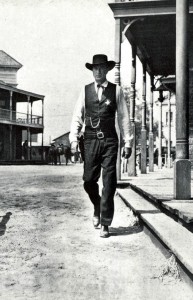 The district court has denied an interim stay of its injunction against the Obama Administration’s immigration policies; the Fifth Circuit has recently rejected, on standing grounds, a comparable case; and oral argument is set for April 17 before the Fifth Circuit on an appellate motion to stay the injunction. I was recently interviewed by Law360 about the matter and anticipate announcement by the Court of the panel for the April 17 argument in the near future.
The district court has denied an interim stay of its injunction against the Obama Administration’s immigration policies; the Fifth Circuit has recently rejected, on standing grounds, a comparable case; and oral argument is set for April 17 before the Fifth Circuit on an appellate motion to stay the injunction. I was recently interviewed by Law360 about the matter and anticipate announcement by the Court of the panel for the April 17 argument in the near future.
With a stay motion still pending in the district court, the United States has asked the Fifth Circuit for an emergency stay of the recent ruling that enjoins President Obama’s immigration program. No. 15-40238. A short clerk’s order, which does not reveal the identity or involvement of any judge “behind the curtain,” has set a response date of March 23. Law360 has written a good article with more detail about the current status in the district court.
In November, a Fifth Circuit panel affirmed the NLRB’s $30,000 award in a retaliation case based on the employer’s handling of a whistleblower. Halliburton Co. v. Administratve Review Board, U.S. Dep’t of Labor, No. 13-60323. The full court has now denied the petition for en banc review, by the close margin of 7 judges for review and 8 against. A 3-judge dissent criticizes the “ad hoc nature” of the panel opinion and warns that it will lead to confusion about what specific conduct can amount to a materially adverse employment action in the context of a retaliation claim.
The Fifth Circuit has now docketed the federal government’s appeal of the recent ruling that enjoins President Obama’s immigration program; meanwhile, in the district court, the plaintiffs’ response to the federal government’s motion to stay pending appeal is due by March 2.
Monday evening, a district judge in South Texas enjoined President Obama’s immigration program; the full text of his opinion is available here. (The case has the remarkably awkward caption of “Texas v. United States.”) An appeal has not yet been docketed with the Fifth Circuit. As with the recent gay marriage arguments, the makeup of the panel will be critical to the resolution of this extremely important case. The Washington Post story is a good example of the media coverage of the ruling.
1. The Fifth Circuit heard oral arguments on Friday, January 9, in the gay marriage appeals from each of the three states in the Circuit. Here is a representative news article about the arguments, and the recording of the arguments is available here.
2. Also on January 9, the Court denied en banc review of a Clean Water Act case arising from the Deepwater Horizon disaster. The vote was 6 in favor of review, 7 opposed, with a short dissenting opinion. I have not followed this opinion previously, and the en banc split is not as telling about commercial cases as a a trio of other votes, but it is nevertheless an uncommon insight on the full Court’s view of an issue.
Judge Emilio Garza of San Antonio, who served ably on the Fifth Circuit over 20 years, has retired effective January 5, 2015.
Here’s a holiday gift from 600Camp — a short article called “How (not) to Draft Arbitration Clauses.” It reviews five cases to offer practical, specific tips for drafting arbitration clauses; specifically, in business settings involving more than one contract signed at different times. Enjoy!
The Supreme Court has granted review of the Fifth Circuit’s opinion in Texas Division, Sons of Confederate Veterans v. Vandegriff, a First Amendment case about Texas’s denial of a request for a specialty license plate featuring the Confederate battle flag.
The Supreme Court has denied review of BP’s challenges to the Deepwater Horizon settlement, resolved by the Fifth Circuit earlier this year in a complicated series of panel opinions and denials of rehearing.
After an unusual pretrial mandamus ruling by the Fifth Circuit in a high-profile False Claims Act case, and after the jury returned a plaintiff’s verdict for $175 million — which could be trebled upon final judgment — the defendants returned to the Fifth Circuit last week. They filed a renewed mandamus petition — drawing on the Court’s statements in the prior ruling — supported by amici filings from Texas A&M and another company. In re: Trinity Industries, Inc., No. 14-41297. The Court has requested a response, presently due on December 1. Further briefing, and the ultimate disposition of this mandamus petition, will be of interest both procedurally and substantively. (Disclaimer: I am not counsel of record in this proceeding, but do represent Trinity.)
This summer, in the panel opinion of Barron & Newburger, P.C. v. Texas Skyline, Ltd., No. 13-50075 (July 15, 2014), the Fifth Circuit affirmed the partial denial of a fee application based on its earlier opinion of In re: Pro-Snax Distributors, Inc., 157 F.3d 414 (5th Cir. 1998). That earlier opinion rejected a “reasonableness” test in the application of Bankruptcy Code § 330 — which would have asked “whether the services were objectively beneficial toward the completion of the case at the time they were performed” — in favor of a “hindsight” approach, asking whether the professionals’ work “resulted in an identifiable, tangible, and material benefit to the bankruptcy estate.” All three panel members joined a special concurrence asking the full Court to reconsider Pro-Snax en banc, and that invitation was recently accepted by a majority of active judges. Law360 provides some good additional commentary about the en banc vote.
The Fifth Circuit has launched an attractive new website, with the customary features and some great pictures of the John Minor Wisdom courthouse and surrounding landmarks.
The concept of “proportionality” in discovery began its modern ascendance in Bell Atlantic Corp v. Twombly, with observations such as these: “Probably, then, it is only by taking care to require allegations that reach the level suggesting conspiracy that we can hope to avoid the potentially enormous expense of discovery in cases with no ‘reasonably founded hope that the [discovery] process will reveal relevant evidence’ to support a § 1 claim.” 127 S.Ct. 1955, 1968 (2007).
Over time, the “proportionality” concept has moved from the discovery rules to pervade the entire system of federal procedure. Consider Advisory Committee Note to revised Federal Rule of Civil Procedure 1 (approved by the Judicial Conference in September 2014 and now before the Supreme Court): “Effective advocacy is consistent with — and indeed depends upon — cooperative and proportional use of procedure.”
While arising under state law rather than the Federal Rules, the recent Texas Supreme Court of In re National Lloyds Ins. Co. illustrates the concept of proportionality in a highly practical context. The plaintiff in an insurance bad faith case sought evidence about similar claim denials, arguing “that the trial court’s discovery order was (1) limited in time, because it compelled only production of evidence relating to the two storms at issue, and (2) limited by location, because it involved only properties in Cedar Hill.” ___ S.W.3d ___, No. 13-0761 (Tex. Oct. 31, 2014) (per curiam).
That Court disagreed: “Scouring claim files in hopes of finding similarly situated claimants whose claims were evaluated differently from [plaintiff’s] is at best an ‘impermissible fishing expedition.’ . . . [Plaintiff] is correct that discovery must be reasonably limited in time and geographic scope. But such limits in and of themselves do not render the underlying information discoverable.” It concluded that there were still too many likely differences between this set of claims and the plaintiff’s case to justify the discovery request.
Because the Fifth Circuit rarely acts en banc in business-related cases, votes by the full court on civil matters deserve careful review as examples of the judges’ broader philosophical leanings. As detailed in another post, I place particular emphasis on (1) the vote to deny en banc review in the Daubert case of Huss v. Gayden (balancing judicial authority with the jury’s); (2) the vote to grant mandamus relief in the venue dispute of In re Volkswagen (balancing appellate authority with that of the trial court); and (3) the 7-8 vote to deny en banc review in the venue case of In re Radmax (same).
The issue in the recent en banc case of McBride v. Estis Well Service, LLC, No. 12-30714 (revised Oct. 24, 2014), while facially addressing an important but technical issue of admiralty law, offers insight about the judges’ views of another topic — the authority of the judiciary as opposed to Congress’s. The introduction to Judge Higginson’s dissent succinctly captures that point: “The question presented by this case is whether seamen may recover punitive damages for their employer’s willful and wanton breach of the general maritime law duty to provide a seaworthy vessel. Because the Supreme Court has said that they can, and Congress has not said they can’t, I would answer in the affirmative, and REVERSE.”
Nine judges (spread across three opinions) saw the answer differently. The conclusion to the majority opinion begins: “In the words of the Supreme Court, ‘Congress has struck the balance for us.'” (citing Mobil Oil Corp. v. Higginbotham, 436 U.S. 618, 623 (1978)). Two concurrences make similar observations. Notably, all of the active judges appointed by a Democratic president at the time of en banc submission are in dissent.
On Friday October 10, the Fifth Circuit denied mandamus relief on the eve of trial in a high-stakes False Claims case, In re Trinity Industries, Inc. — but took the unusual step of making an additional statement: “The court is compelled to note, however, that this is a close case. The writ is timely and the litigation stakes–the potential for a $1 billion adverse judgment–are unusually high. This court is concerned that the trial court, despite numerous timely filings and motions by the defendant, has never issued a reasoned ruling rejecting the defendant’s motions for judgment as a matter of law.” The Court went on to cite several specific opinions that caused its concern.
On October 2, the Supreme Court granted certiorari in ASARCO v. Baker Botts, L.L.P., a Fifth Circuit case about enhancement of professional fees for a “rare and extraordinary” result in bankruptcy fraudulent transfer litigation.
On September 9 at noon at the Belo Mansion in downtown Dallas, a panel consisting of Judges Gregg Costa, Jennifer Elrod, James Graves, and Stephen Higginson — and moderated by Judge Catharina Haynes — will offer tips about effective advocacy before the Fifth Circuit. It is sponsored by the DBA’s Business Litigation Section; co-sponsored by the Appellate Law & Trial Skills Sections. Terrific opportunity for advice that comes straight from the source.
Keep an eye on the proposed amendments to the FRCP, which will be considered by the Judicial Conference in September and then forwarded on to the Supreme Court and Congress if approved. Two major features are:
- –A redefined scope for permissible discovery in Fed. R. Civ. P. 26(b)(1) [page 10 of the linked document above]
- –Revised sanctions rules about the spoliation of electronic evidence in Fed. R. Civ. P. 37(e)(1) and (2) [page 37 of the above]
The Advisory Committee notes, while lengthy, are particularly informative about the reasons for these revisions and how they are intended to work in practice.
On Monday the 14th, a 2-1 Fifth Circuit opinion affirmed the free speech rights of the Sons of Confederate Veterans. On Tuesday the 15th, a 2-1 Fifth Circuit opinion rejected a constitutional challenge to the “top ten percent” admissions policy of the University of Texas: “[T]he backdrop of our efforts here includes the reality that accepting as permissible policies whose purpose is to achieve a desired racial effect taxes the line between quotas and holistic use of race towards a critical mass. We have hewed this line here, persuaded by UT Austin from this record of its necessary use of race in a holistic process and the want of workable alternatives that would not require even greater use of race, faithful to the content given to it by the Supreme Court.” Fisher v. University of Texas, No. 09-50822. Both opinions — and the dissents — offer thoughtful analyses of the institutional, historical, and precedential structure of the law governing highly sensitive issues of race, in the geographic area that was once the western portion of the Confederacy. Ideological sound bites will fly about both cases, as the First Amendment allows and encourages, but their reasoning deserves respect and study.
At the recent University of Texas Conference on State and Federal Appeals, Fifth Circuit Clerk Lyle Cayce gave a presentation about the Court that included a demonstration of a remarkable new technology. After an attorney files a brief, the Court has software that quickly adds hyperlinks for all case and record citations (which is the reason for the recent local rule change to standardize the form for record references). Those links are then available to the judges and staff on their computers and tablets. Among other implications, this new technology means that pre-argument, review of the record is no longer limited to the parties’ record excerpts.
The full Senate confirmed Judge Gregg Costa’s appointment to the Fifth Circuit yesterday. While great news for the Court and bar, it bears mention that the seat was open for 837 days, and two vacancies still remain on the Fifth Circuit. Just as it is difficult to balance the sound of an orchestra missing musicians, it is hard to balance the powers of a government missing key officials.
This week, the Texas Lawbook has posted an excellent profile of Chief Judge Carl Stewart, titled “Meet Chief Judge Carl Stewart: ‘A Brilliant Legal Mind Housed in a Very Nice, Regular Person.'” The ABA Journal will publish the profile later this week.
Gregg Costa, a recent appointee to the Galveston division of the Southern District of Texas, has been nominated by President Obama to the Fifth Circuit. A Rehnquist clerk and the lead prosecutor in the Allen Stanford case, Judge Costa enjoys substantial bipartisan support for his intellect and abilities.
In a 9-0 opinion, the Supreme Court reversed a Fifth Circuit panel about the enforcement of a forum selection clause. Atlantic Marine Construction v. U.S. District Court for the Western District of Texas, 571 U.S. ___ (December 3, 2013). The panel opinion questioned enforceability when the district of suit was otherwise proper under the federal venue statutes; a strong dissent by Judge Catharina Haynes argued otherwise. The Supreme Court endorsed her position: “When the parties have agreed to a valid forum-selection clause, a district court should ordinarily transfer the case to the forum specified in that clause. Only under extraordinary circumstances unrelated to the convenience of the parties should a §1404(a) motion be denied. And no such exceptional factors appear to be present in this case.” Procedurally, while the Supreme Court noted in its introduction that the case arose in a mandamus context, it nowhere discusses how that posture affects the analysis — a significant point that divided the Fifth Circuit’s recent en banc vote in the case of In re Radmax.
Two new briefing rules took effect in the Fifth Circuit on December 1. The first eliminates the requirement of a separate statement of the case, and consolidates a matter’s procedural and substantive history into a single statement of facts. The second standardizes record citations. “For multiple record cases, parties will cite ‘ROA’ followed by a period, followed by the Fifth Circuit appellate case number of the record they reference, followed by a period, followed by the page of the record. For example, ‘ROA.13 12345.123.’ In single record cases, parties cite the short citation form, ‘ROA,’ followed by a period, followed by the page number. For example, ‘ROA.123.'” This standardized form should help the Court in electronically matching record citations and the actual record.
The Fifth Circuit has voted to rehear en banc the case of Department of Texas, VFW v. Texas Lottery Commission. Texas allows charitable bingo if the sponsoring organization does not use the proceeds for political advocacy and several charities challenge that restriction on First Amendment grounds. The case presents the challenging question whether this limitation violates the “unconstitutional conditions” doctrine.
The machinery of justice needs fuel to function. An eloquent letter by the Judicial Conference of the United States summarizes today’s serious situation about the funding of the federal courts. Please speak out.
The Fifth Circuit has affirmed in all respects the high-profile corruption convictions associated with former Dallas City Councilman Don Hill: United States v. Reagan et al. (August 2, 2013).
The Court released a revised opinion in National Rifle Association v. Bureau of Alcohol, Tobacco, Firearms & Explosives, a gun control case of broad general interest that has grown in social significance since its original release in October of 2012. No. 11-10959 (revised April 29, 2013). A thoughtful opinion rejects a Second Amendment challenge to restrictions on handgun purchases by 18-to-20 year-olds, noting: “considerable historical evidence of age- and safety-based restrictions on the ability to access arms . . . .” The Court rejected challenges to the standing of the NRA as an organization to sue on behalf of members with personal interests in the dispute. This case was found to control in a later dispute about a similar law, NRA v. McCraw, No. 12-10091 (revised May 22, 2013).
The Fifth Circuit’s 2012 business litigation opinions suggest these five tips for the New Year:
1. Plead key details. While not removing the limits on Fed. R. Civ. P. 9(b), the Court has reminded twice of the importance of “what,” “how,” and “when” in pleading under Twombly and Iqbal. It also reversed a Rule 12 dismissal in a contract case because the plaintiff adequately pleaded an industry custom about the relevant terms.
2. Plead reasonably. The Federal Circuit, applying Fifth Circuit law, reversed the denial of Rule 11 sanctions for what it saw as an objectively unreasonable construction of a patent.
3. Stretch the long arm carefully. Applying recent Supreme Court authority, the Fifth Circuit found no personal jurisdiction over cases about an “off-the-shelf” software contract, a distributorship arrangement based outside the forum state, and an alleged corporate “alter ego” situation.
4. Watch the eight corners. During 2012, the Court reversed once, and then again, to reject exceptions to Texas’s “eight corners” rule about insurance coverage, but also reversed to allow a mistake claim to proceed despite that rule.
5. Don’t count on mandamus. After granting mandamus in a high-profile venue dispute in 2008, the Court has since declined to grant the writ as to the wrongful denial of a remand motion and an alleged error about a forum selection clause.
Judge Edith Jones has resigned as Chief Judge of the Fifth Circuit, to be succeeded by Judge Carl Stewart from Louisiana. She will continue to serve on the Court. This change returns the Court to a familiar balance seen with Chief Judges Henry Politz and Carolyn King, when a Democratically-appointed Chief presided over a court with a majority of Republican-appointed judges.
From the second third of 2012, here are 5 commercial litigation cases from the U.S. Court of Appeals for the Fifth Circuit worth knowing:
1. Personal jurisdiction. “[O]ff-the-shelf, out-of-the-box” software contract did not create a “long-term interactive business relationship” with Texas. Pervasive Software v. Lexware GMBH & Co., No. 11-50097 (5th Cir. July 20, 2012).
2. Class certification. No “commonality” for claims about “whether each individual qualified for the discount based on the evidence in his or her file.” Ahmad v. Old Republic Nat’l Title Ins., No. 11-10695 (5th Cir. Aug. 13, 2012).
3. Daubert challenges rejected. Several issues about mechanical engineering testimony “ultimately . . . affected the weight of the evidence” rather than admissibility. Roman v. Western Manufacturing, No. 10-31271 (5th Cir. Aug. 17, 2012)
4 and 5. Satisfying Twombly and Iqbal
Not enough: pleading that “invokes three potentially cognizable theories of liability,” but “does not identify by date or amount or type of service, any of the alleged bad-faith denials and delays . . . .” Patrick v. Wal-Mart, 681 F.3d 614 (5th Cir. 2012).
Not enough: “no allegations regarding the types of businesses . . . the size . . . where they are located, or what laws and regulations they have violated.” Bowlby v. City of Aberdeen, 681 F.3d 215 (5th Cir. 2012).
Compare: “Particularity” standard under FRCP 9(b) “require[s] a plaintiff pleading fraud to specify the statements contended to be fraudulent, identify the speaker, state when and where the statements were made, and explain why the statements were fraudulent. . . . the who, what, when, where, and how of the events at issue.” E.g., Dorsey v. Portfolio Equities, 540 F.3d 333, 339 (5th Cir. 2008).
From the first third of 2012, here are 5 commercial litigation cases from the U.S. Court of Appeals for the Fifth Circuit worth knowing:
1. Unenforceable arbitration clause. A clause in an employee manual, which could be amended by giving appropriate notice, was illusory and not enforceable. Carey v. 24 Hour Fitness, 669 F.3d 202 (5th Cir. 2012).
2. Personal jurisdiction. The defendant’s 55 transactions in Mississippi were not sufficiently related to the claim to create personal jurisdiction. This was the Circuit’s first jurisdiction case since two major Supreme Court cases in 2011. ITL International, Inc. v. Sonstenla, S.A., 669 F.3d 493 (5th Cir. 2012).
3. Sufficient causation evidence. A thorough opinion finds that expert testimony was not needed in a personal injury case, but even then, the evidence of causation was not sufficient. Huffman v. Union Pacific Railroad, 675 F.3d 412 (5th Cir. 2012).
4. Business Torts Damages 101. The defendants’ acts were not actionable in fraud, did not amount to fraudulent inducement, but did support liability for misappropriation of trade secrets. Bohnsack v. Varco, 668 F.3d 262 (5th Cir. 2012).
5. Statute of Frauds 101. Sufficient evidence to satisfy the Statute of Frauds is different than what may establish contract liability. Preston Exploration Co. v. GSF, LLC, 669 F.3d 518 (5th Cir. 2012).
In response to a pointed request by the argument panel in a health care case, Attorney General Holder filed a letter brief on April 5 that affirms DOJ’s recognition of Marbury v. Madison while also defending its right to contest federal jurisdiction. The request, and the letter brief, form part of the national debate now before the Supreme Court about the constitutionality of recent health care legislation.
Here is a helpful summary of the “Federal Court s Jurisdiction and Venue Clarification Act of 2011,” H.R. 394, P.L. 112-63, which took effect in January 2012.
The Fifth Circuit and its courthouse are linked to life in the downtown of New Orleans – note that the clerk’s office will close at 4:00 on January 9 because of the BCS championship game at the Superdome that evening.
Today’s Texas Lawyer features a list of the Fifth Circuit’s “top ten” cases from 2011: http://tinyurl.com/78navn2
Stephen Higginson’s nomination to the Fifth Circuit has been confirmed by the Senate.
